Where in the world can you legally smoke cannabis?
- Published
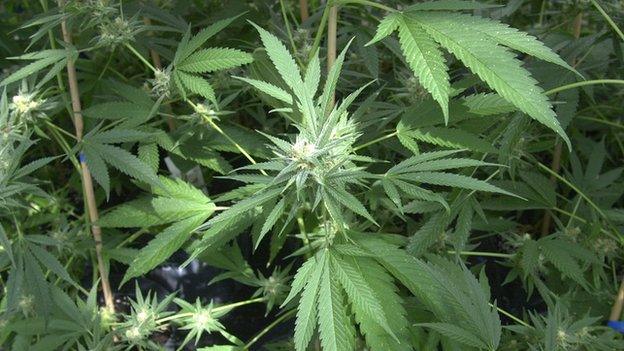
The government says its drugs policy will not change following a Home Office report which found tough laws do not appear to cut abuse.
The Deputy Prime Minister Nick Clegg wants a change to focus on treatment and not punishment.
MPs have been separately discussing why legalising some drugs could outweigh associated health risks.
We look at how other countries around the world deal with the issues of drug abuse.
So where in the world is it legal to smoke marijuana?
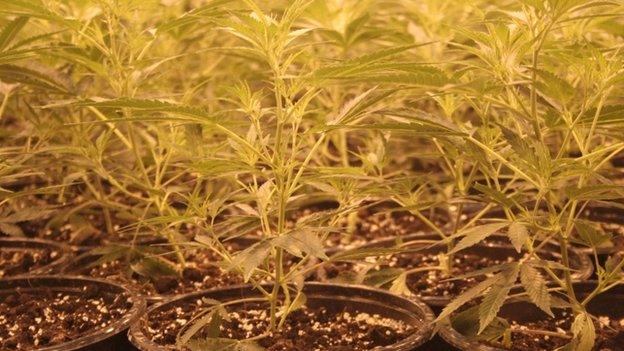
Colombia: Small amounts of up to 22 grams are OK for personal consumption. However, selling it remains illegal. You are allowed to grow up to 20 plants for personal use.
Costa Rica: It's a bit of a grey area. Cannabis is illegal but there's widespread smoking throughout the country. Police officers do not arrest people carrying enough for personal consumption, yet no amount has been outlined as a minimum for possession.
Czech republic: Possession of up to 15 grams for personal use or growing up to five plants is a police caution. Medical use of the drug on prescription has been legal since April 2013.
Ecuador: Having a small stash of under 10 grams for personal use is legal.
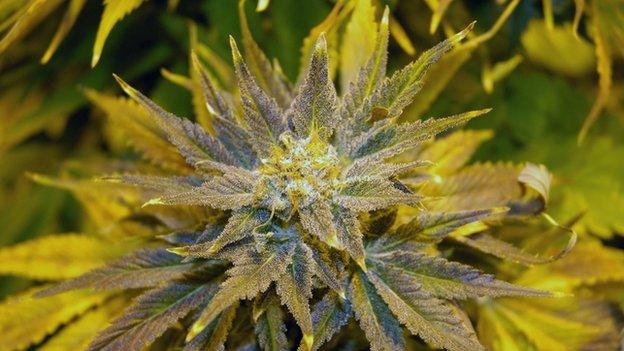
Jamaica: Growing, selling and using cannabis is illegal. However, the government passed a motion in 2013 to decriminalise the drug if a person was found with a small amount.
Netherlands: Cannabis products are only sold in "coffee shops" and possession of up to 5 grams for personal use is OK. Other types of sales and transportation are illegal.
Norway: In Norway, there is a sliding scale approach to cannabis possession. Less than 15 grams is considered "for personal use" and could see you fined between 1,500-15,000 kroner (£140 - £1,500). Carrying more is considered "dealing" and punished much more harshly, including jail.
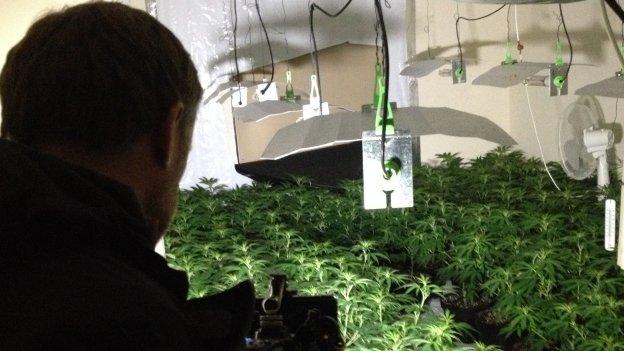
Peru: Possession of under eight grams is considered legal for personal use.
Portugal: It became the first country in the world in 2001 to legalise the use of all drugs, and started treating drug users as sick people, instead of criminals. However, you can be arrested or made to go into rehab if caught several times in possession.
Romania: Medical use is legal under certain conditions.
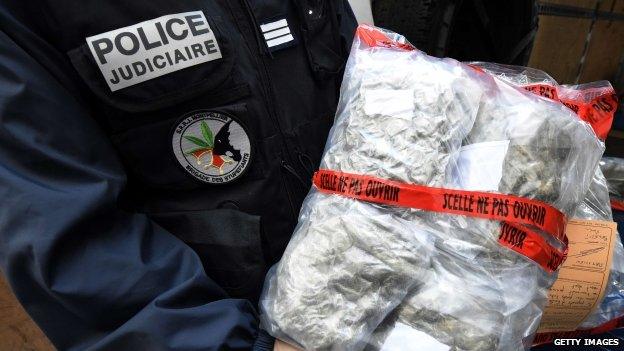
Earlier this week, a policeman in Lunel-Viel in France shows a bag of seized cannabis which will be destroyed
Spain: Growing the plant on private property for personal use, and consumption by adults in a private space, is legal. But buying or selling any quantity of cannabis is a criminal offence. Possession and consumption in a public place is illegal and punishable by a fine.
Switzerland: Growing up to four plants is legal. But sale or transport is illegal.
Uruguay: A law has been passed legalising cannabis but won't into come into effect until 2015. The new law says that buyers must be 18 or older, residents of Uruguay, and must register with the authorities. Authorities will grow the cannabis that can be sold legal.
USA: Colorado and Washington state have legalised marijuana for recreational use, while some of the other states, external permit medical marijuana.
UK: It is illegal to possess cannabis.
If you need help with problems relating to drug use you can get help from Talk to Frank, external or visit the Radio 1 Advice pages.
The health risks (from Radio 1's Advice pages)
Smoking cannabis can make asthma worse, can cause wheezing in people without asthma and can lead to lung cancer.
Like tobacco, it's also addictive.
If you develop a tolerance and try to stop using cannabis, you may experience withdrawal symptoms like mood changes, cravings, difficulty sleeping or sweating and shaking. Not nice.
Regular cannabis use puts you at risk of later developing psychotic illnesses including schizophrenia.
If you have a family background of mental illness, you may also have an increased risk.
Some people use cannabis to relieve the symptoms of multiple sclerosis or chronic pain.
Follow @BBCNewsbeat, external on Twitter and Radio1Newsbeat, external on YouTube